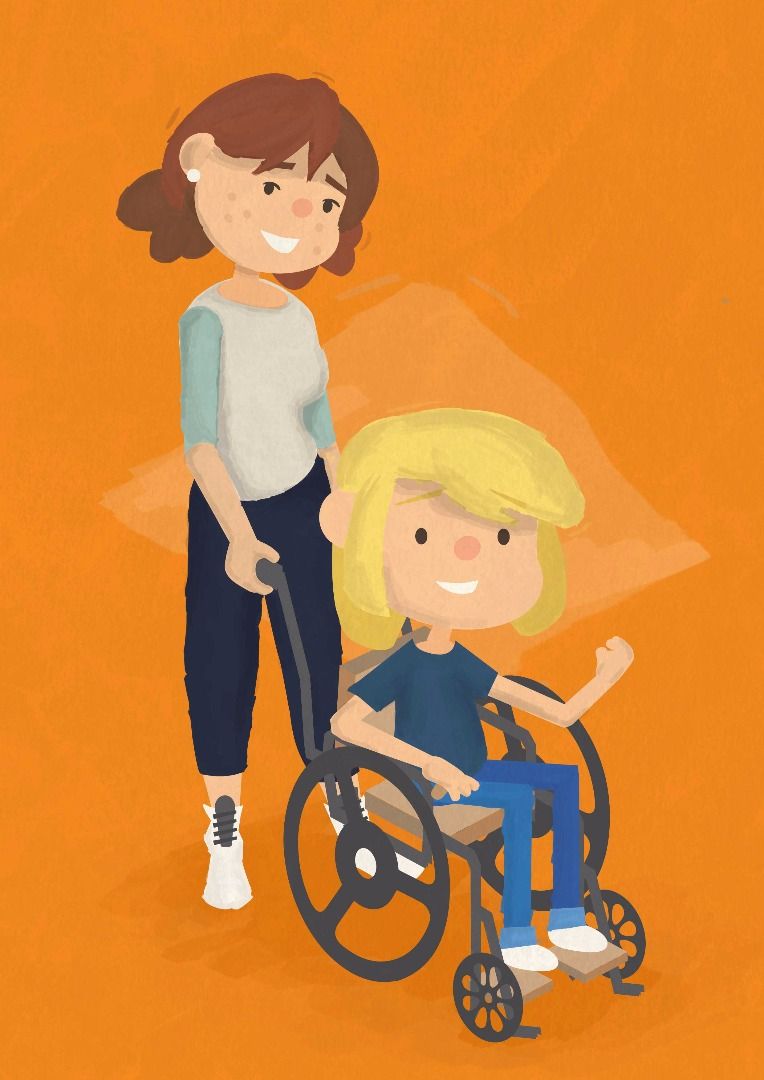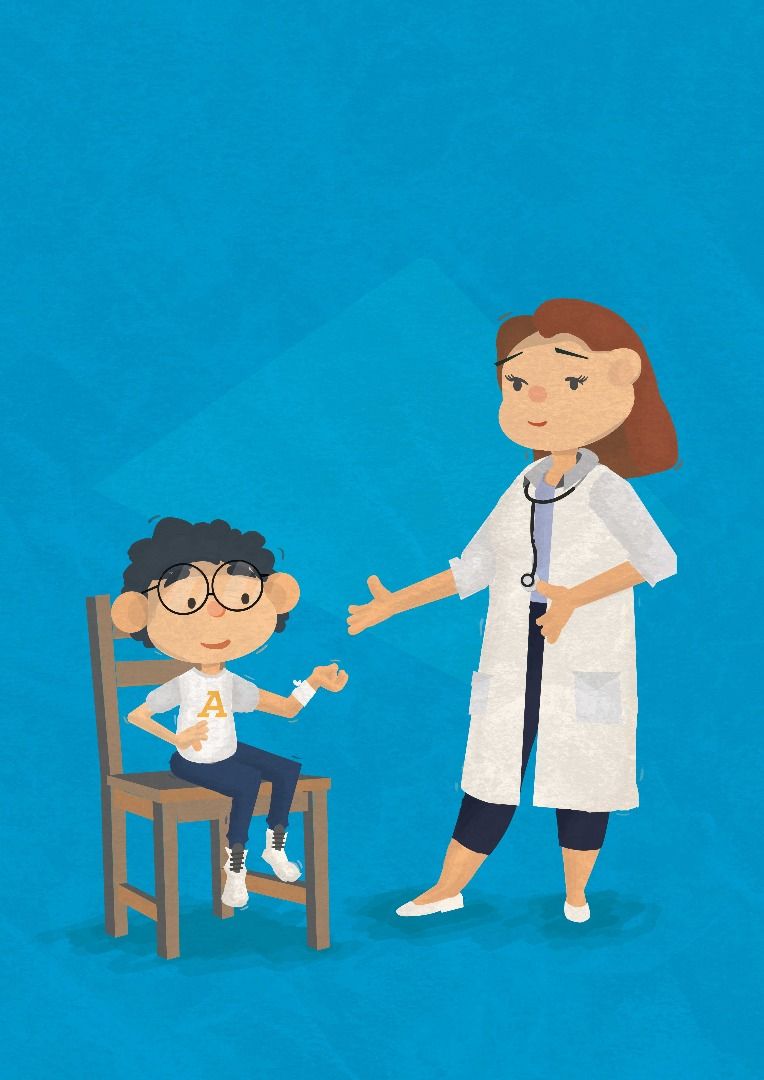This section relates to articles 6, 18, 23, 24, 26, 27 and 33 of the UNCRC and Section G of the Concluding Observations.
Children with Disabilities
- The government should take a rights based approach to supporting children with disabilities, and develop a plan so that they are not excluded from things because of their disability.
They should also:
- Make sure that if you have a disability, you can have a say in decisions that affect you, including decisions about your personal support and education.
- Make sure schools are including children with disabilities, and not rely so much on special schools.
Make sure that children with disabilities get the support they need as they become adults, and that planning for this starts early. Government departments should work together to make sure this is a positive, stress free experience for children and young people, and that children and young people are listened to and have their views taken seriously.
What is a Rights Based Approach?
This means that government will recognise that children with disabilities have the same Rights as everyone else, and that government is responsible for making sure they keep the promises they have made.
 Health and Health Services
Health and Health Services
You have the right to the highest possible standard of health, and governments should involve everyone necessary to plan for this. The Government should:
- Make sure there is enough money for your healthcare, and keep checking that services are helping to improve children and young people’s health.
- Make sure that all children and young people can get the same services, whoever they are, and that no groups of children are less healthy because of where they live, or their family background.
Mental Health
The Government should:
- Gather information on the mental health of children of all ages. This is important so they can find out who is more likely to be vulnerable and what the root cause is.
- Develop detailed plans to provide mental health services to children and young people, and provide enough money for these services. The plans should make sure you can always get help when you need it and should focus on groups who are more likely to have poor mental health, for example children in poverty, children in care, and children in contact with the criminal justice system.
- Make sure that children with mental ill-health are never looked after in adult mental health wards or in police stations. Instead child and young person friendly mental health services, which focus on your needs, should be available.
- Provide more support for children with mental health problems in their community.
- Look over the current laws on child mental health and be sure that the best interests and the views of the child are properly taken into account when treating children and young people under 16. This is particularly important when thinking about taking a child into hospital for treatment, or when they don’t want the treatment to happen.
The government should also:
- Carefully collect information on how much, and how often certain types of drugs called ‘psychotropic drugs’ are prescribed to children. This information should be available to everyone.
- Make sure that medicine is given to children and young people only as a last resort for mental health issues. This should happen only after careful consideration of the child’s needs and their best interests. If affected, you and your parents should be told about possible side effects, and other types of treatments.
- Keep a close check to see when Attention Deficit Hyperactivity Disorder (ADHD) and similar disorders are being diagnosed and find out why they are being diagnosed more now than in the past, this should include the possible causes of ADHD. This should also help to make sure it isn’t being diagnosed incorrectly.
What are Psychotropic Drugs?
These are medications that can affect the mind, emotions and behaviour, for example Ritalin and Concerta.
Adolescent Health
The government should:
- Involve young people in developing a sexual and reproductive health policy for teenagers, making sure that all young people are supported equally.
- Sexual and reproductive health education, relevant to the lives of young people, should be part of the compulsory school curriculum for all schools. The education provided should include age appropriate information on:
- Confidential sexual and reproductive health-care services.
- Contraceptives.
- Prevention of sexual abuse or exploitation.
- Sexuality, including that of LGBT children and young people.
- Legalise abortion in Northern Ireland in all circumstances and make sure girls have access to safe abortions and post abortion care services. The views of the child should always be heard and respected in all abortion cases.
Nutrition
 The government should:
The government should:
- Collect information on how children get food and on nutrition for children. This should include statistics on breastfeeding and numbers of children overweight or obese so they can find out why children are malnourished or going without food.
- Regularly gather facts on how well the policies and programmes aimed at making sure children have enough healthy food are working. They should check the school meals programme, food banks and programmes for babies and young children.
- Promote, inform people and support breastfeeding to improve children’s health. This could prevent obesity and some diseases and improve babies’ mental health.
- Government should fully implement the International Code of Marketing of Breast milk Substitutes so that parents are clear that breast milk is best for their babies.
Environmental Health
The government should:
- Make a legal commitment to reduce the levels of pollution in the air, especially near schools and residential areas, and provide the money necessary to deliver this.
- Place children rights at the centre of all plans for tackling climate change, including both in the UK and internationally.
Standard of living: Poverty and Homelessness
Poverty
The government should:
- Make sure all of its agencies are working together to get rid of child poverty. This should include bringing back proper targets with a set timeframe, and targets that can be easily measured to see if they are doing a good job. Governments should check and report on how well it is doing in reducing child poverty.
- Make sure that any general poverty work has looked carefully at child poverty, and make sure all parts of the UK have plans in place to stop children living in poverty.
- Find out what effect benefits and tax credit changes have had on children in the past six years, including on children with disabilities and those from ethnic minorities.
- Always make changes to the tax and benefit system so that children’s best interests always come first. This is really important to children in vulnerable situations, who are most affected.
What is Poverty?
Poverty can be measured in different ways but it means that the person in poverty does not have enough money to have a decent standard of living. Find out more about child poverty here.
Homelessness
The government should:
- Make sure children are not living in temporary accommodation for long.
- Take action to reduce homelessness and make sure all children have a home that meets their needs and is safe, healthy and, for children with disabilities, accessible.